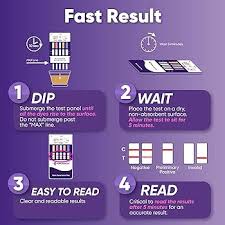The Quest for Fast Results: Strategies and Implications

Introduction
In an increasingly fast-paced world, the demand for quick results has become paramount in various sectors, from business to health and technology. The ability to achieve fast results is not just a convenience but often a necessity for success, competitiveness, and efficiency. As industries evolve, understanding effective strategies to expedite outcomes has never been more crucial.
Fast Results in Business
In the business arena, companies are constantly seeking ways to speed up processes. Agile methodologies, for instance, have revolutionised project management by enabling teams to deliver results in shorter cycles. This approach not only boosts productivity but ensures continuous improvement through regular feedback. A recent survey indicated that 71% of organisations adopting Agile reported better project success rates, highlighting the importance of speed in business operations.
Health and Fitness
Fast results are also significant in personal health and fitness. Many individuals resort to intensive workout regimes and dietary changes to see quick outcomes, like weight loss or muscle gain. Health professionals, however, stress the importance of sustainable practices over quick fixes. The popularity of high-intensity interval training (HIIT) exemplifies this, providing efficient workouts that yield significant fitness improvements in shorter timeframes. This trend has led to a 30% increase in participation in such programs over the past three years, according to the Fitness Industry Association.
Technology and Innovation
The technology sector is another area where fast results are crucial. Start-ups often operate under tight deadlines to innovate and launch products before competitors. Accelerators and incubators have emerged to facilitate rapid growth and success for emerging companies. Reports indicate that 40% of start-ups that engage with accelerators are more likely to secure funding than those who do not, underscoring the additional benefits of speed.
Conclusion
The pursuit of fast results permeates every aspect of modern life, influencing how we approach business, health, and innovation. While it can drive progress, stakeholders must balance the urgency for speed with the need for quality and sustainability. As we look ahead, the demand for fast results will likely continue to shape strategies across various sectors, challenging individuals and organisations to adapt and revolutionise their approaches to achieve success. Being equipped with the right strategies not only benefits organisations but also promotes personal growth, ensuring that fast results contribute positively to overall development.









